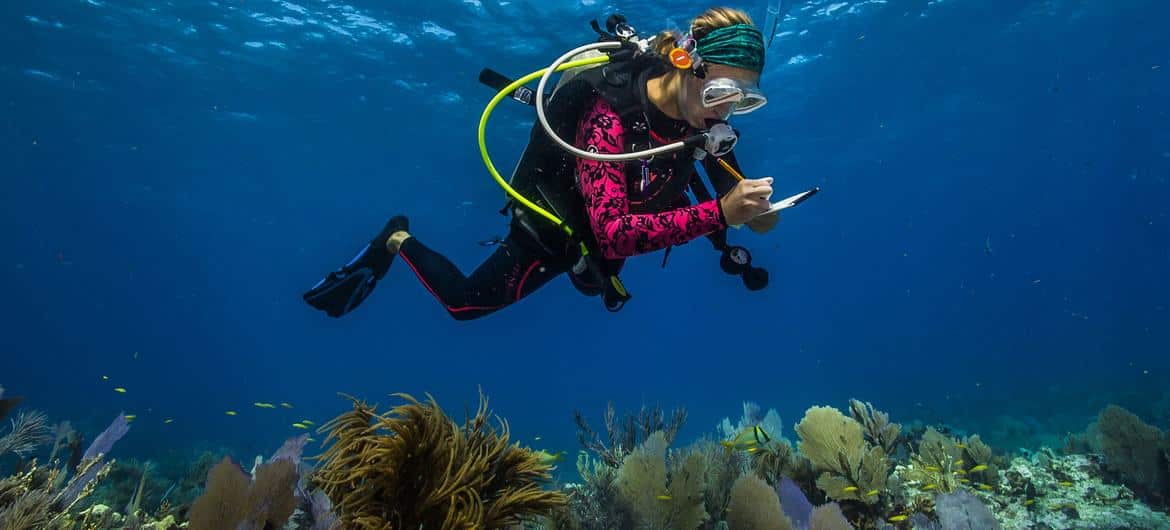UN Discusses Actions to Enhance Ocean-Related Scientific Research

Reliable data is crucial for making informed decisions and enhancing the prediction and response to ocean hazards, as emphasized by speakers at the 2025 United Nations Ocean Conference in Nice, France. The conference highlighted the pressing need to address the triple planetary crisis of climate change, pollution, and biodiversity loss. Experts discussed the importance of scientific cooperation and community engagement in safeguarding ocean health, urging immediate collective action to tackle these urgent challenges.
Community Engagement and Urgency for Action
During a panel discussion moderated by David Obura, Chair of the Intergovernmental Science-Policy Platform on Biodiversity and Ecosystem Services, speakers underscored the importance of community involvement in ocean conservation efforts. José Manuel Fernandes, Portugal’s Minister of Agriculture and the Sea, emphasized his country’s initiatives aimed at educating vulnerable coastal populations. He pointed out the significance of preserving coral reefs, protecting marine turtles, and combating illegal fishing. Fernandes stressed the urgency of collective action, stating, “There is no time to lose. We must all row in the same direction together — the planet cannot wait any longer for us to act.” His remarks resonated with the need for immediate and unified efforts to address the challenges facing the oceans.
Javier Martínez-Acha Vásquez, Panama’s Minister for Foreign Affairs, echoed this sentiment, reminding attendees that only five years remain to meet the goals of the 2030 Agenda for Sustainable Development. He called for scientific solutions to guide decision-making as the world grapples with pressing oceanic challenges. “Now is the time to do more,” he urged, emphasizing that words must translate into action, and swift measures are essential.
Integrated Approaches to Ocean Governance
Vidar Helgesen, Executive Secretary of the Intergovernmental Oceanographic Commission at UNESCO, highlighted the necessity for a comprehensive approach to ocean governance. He noted that the ocean is interconnected and cannot be compartmentalized, necessitating a response that reflects its complexity. Helgesen acknowledged the challenges of translating scientific knowledge into policy, particularly within the intricate political landscape. He stressed the importance of ensuring that decision-makers have access to relevant knowledge, stating, “We must work harder to ensure that knowledge reaches those shaping decisions.”
Helgesen also pointed out that less than 1 percent of development assistance is allocated to ocean-related initiatives, a figure he deemed inadequate. He emphasized the critical role of the business and financial sectors in supporting ocean sustainability, noting that effective investment relies on reliable data. He concluded by calling for the mobilization of governments, philanthropists, and the private sector to take urgent, collective action.
Addressing Ocean Health Challenges
Celeste Saulo, Secretary General of the World Meteorological Organization (WMO), warned of the severe and lasting impacts of record ocean heat and acidification. She highlighted the existential threat posed by rising sea levels to island nations and coastal megacities. Saulo pointed out that disruptions to ecosystems, populations, and trade are resulting in significant economic losses. “We need to turn the tide,” she stated, emphasizing the importance of scientific collaboration, data exchange, and political will.
Saulo announced WMO’s initiative to deploy 10,000 ships dedicated to ocean observation, aimed at enhancing global forecasting and early warning systems for ocean-related hazards. She underscored that robust data is essential for improved decision-making and forecasting, stating, “This is a must.” Saulo concluded with a stark reminder of the ocean’s long memory, urging immediate action to mitigate its ongoing challenges.
Innovative Solutions and Future Directions
Li Jiabiao, a researcher at the Second Institute of Oceanography in China, discussed the profound changes and challenges facing the oceans. He called for breaking cognitive boundaries and advancing scientific innovation to tackle these issues. Li emphasized the need for regular assessments of ocean health and greater collaboration between scientists and policymakers. He also advocated for creating support networks for young professionals passionate about ocean issues.
Pierre Bahurel, Director-General of Mercator Ocean International, highlighted the increasing demand for scientifically validated data and decision-support tools. He noted the importance of public engagement, citing a rise in families using digital platforms to connect with ocean-related content. Looking ahead, he emphasized the role of emerging digital technologies in transforming how ocean data is generated and shared, stressing that strong international cooperation is essential to ensure no one is left behind.
Vincent Pieribone, Co-CEO and Chief Science Officer of OceanX, shared insights into the organization’s collaborative efforts to unlock the sustainable potential of the ocean. He highlighted projects in Saudi Arabia, Egypt, and Sudan that aim to inspire learning and engagement through localized lesson plans and live ocean expeditions. Pieribone reiterated the urgent need for more data and inclusive access to ocean knowledge, emphasizing that the future of ocean science must be inclusive to benefit all stakeholders.
Observer Voice is the one stop site for National, International news, Sports, Editor’s Choice, Art/culture contents, Quotes and much more. We also cover historical contents. Historical contents includes World History, Indian History, and what happened today. The website also covers Entertainment across the India and World.

